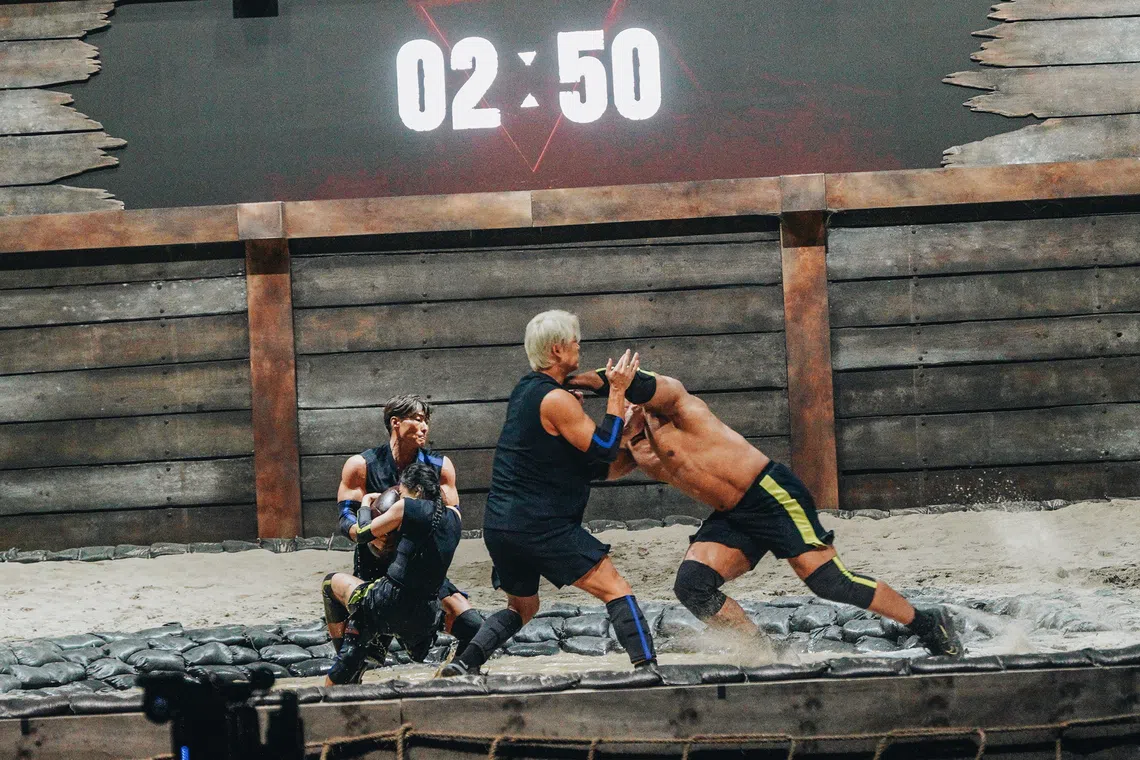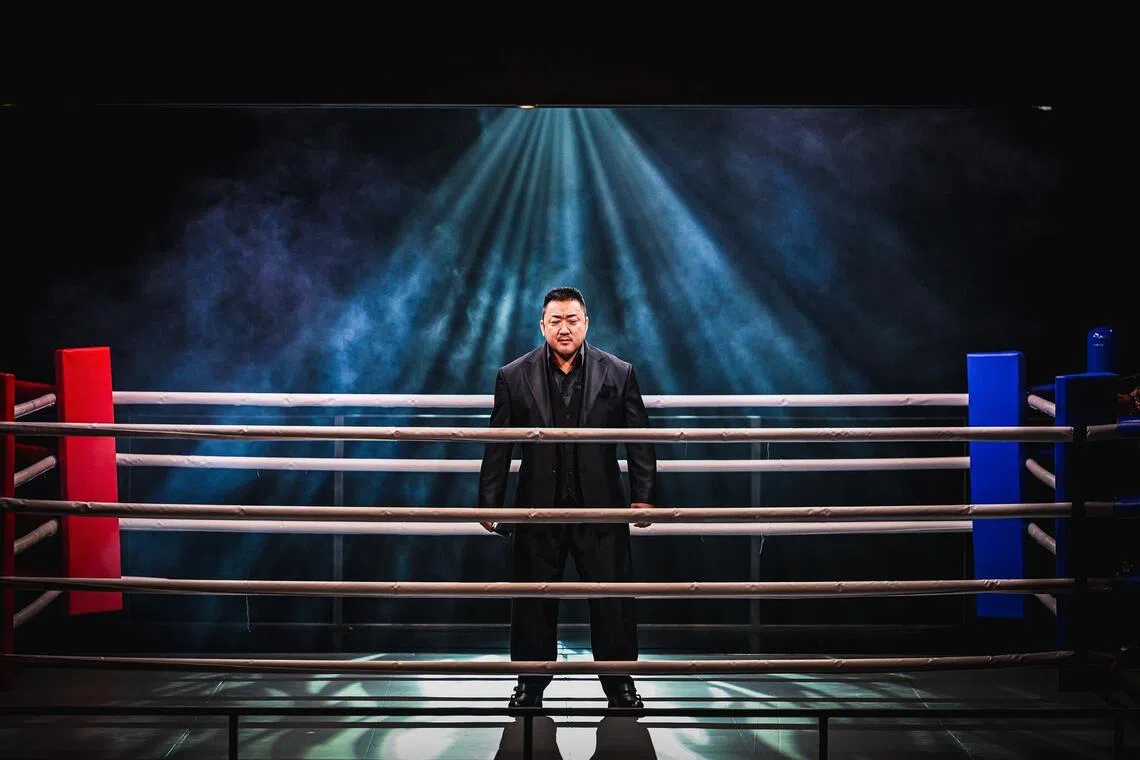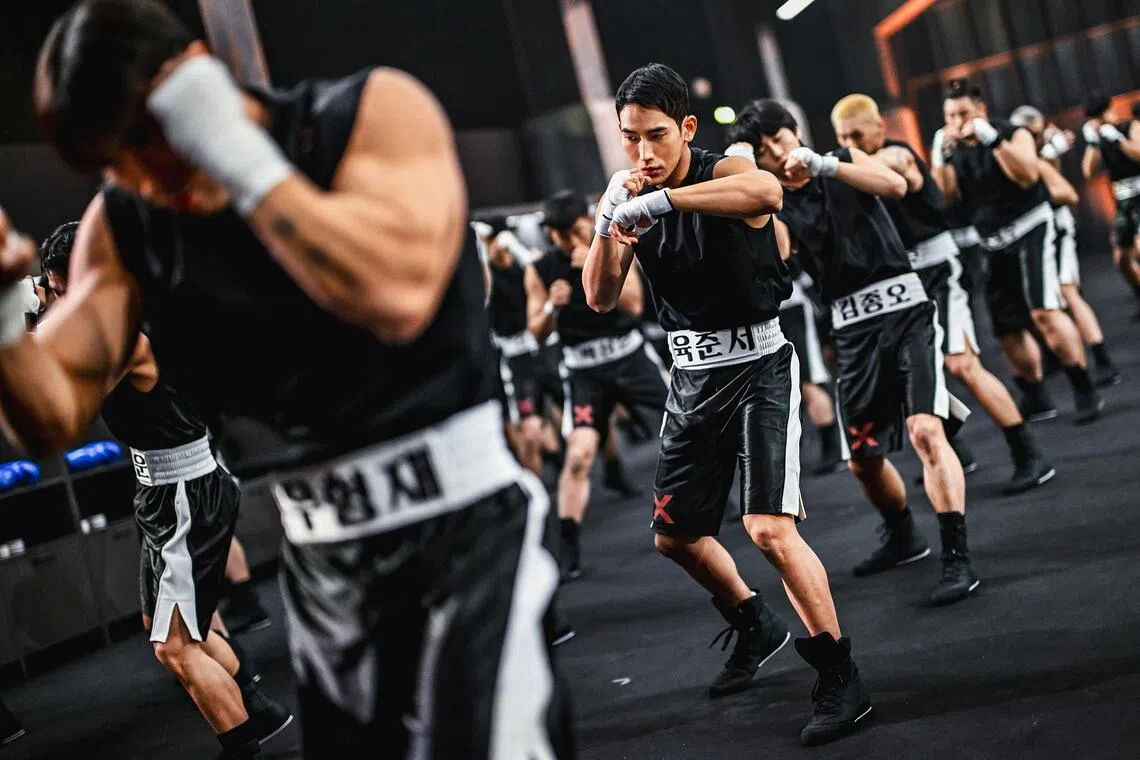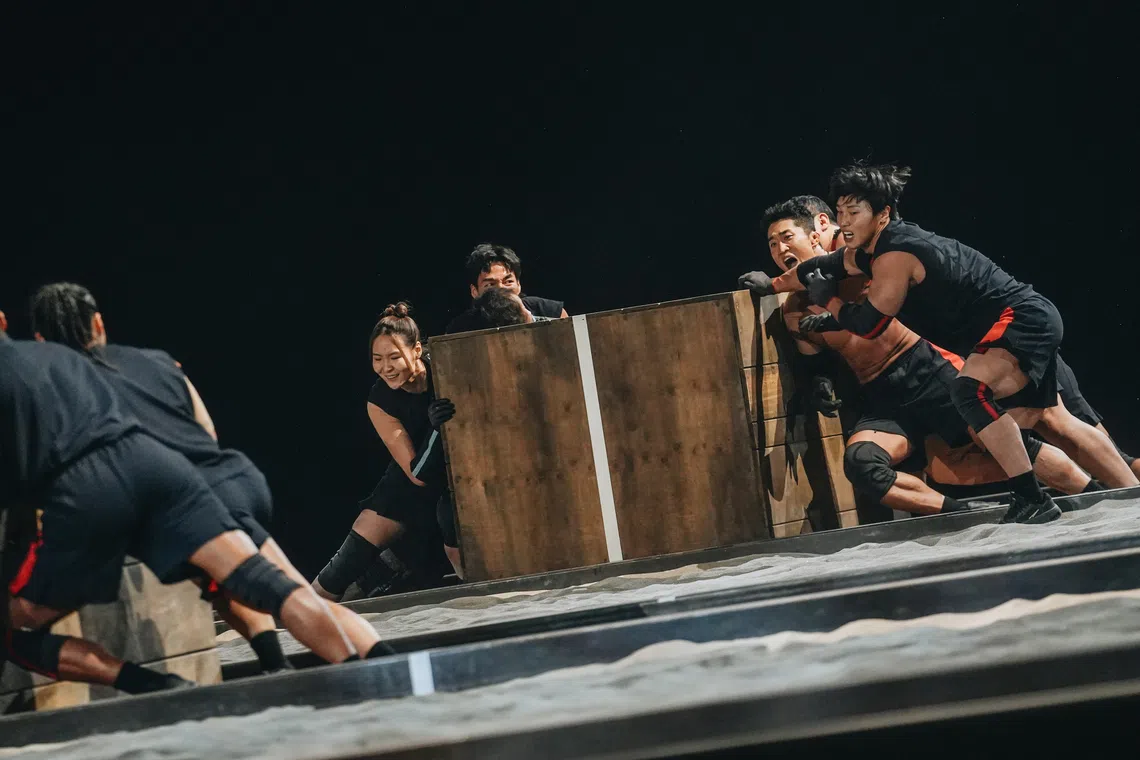From Physical: Asia to I Am Boxer: S. Korea’s new obsession is survival reality shows built on sweat
Sign up now: Get ST's newsletters delivered to your inbox

Netflix’s Physical: Asia and I Am Boxer from Disney+ are among South Korea's hottest reality shows.
PHOTOS: NETFLIX, DISNEY+
Follow topic:
SEOUL – South Korean variety shows pushing the human body to its breaking point are dominating screens, and viewers cannot seem to look away.
Netflix’s Physical: Asia
Building on the momentum of the hit franchise Physical

Netflix’s Physical: Asia went straight to the streaming platform’s top 10 series in South Korea.
PHOTO: NETFLIX
Challenges included some three-hour rope-hangs, endless heavy-pole pushes and hauling massive metal spheres – all of which helped the show become one of Netflix Korea’s standout unscripted entries in 2025.
Riding that wave, tvN has rolled out its own contender with I Am Boxer, fronted by Korean American actor Don Lee, the action star behind The Outlaws crime action film franchise (2017 to 2024), and a professional boxing coach.
The series, which premiered on Disney+ on Nov 21, positions itself as a boxing survival competition with a 300 million won (S$265,000) cash prize, champion’s belt and luxury sport utility vehicle on the line.
Its 90 contestants vary in age and profession, and include actors, athletes, UFC fighters and ex-soldiers.

Korean American actor Don Lee in I Am Boxer.
PHOTO: DISNEY+
Producer Lee Won-woong, who previously steered Channel A’s breakout military survival hit The Iron Squad, said the appeal of I Am Boxer lies in its pure intensity.
“Writer Kang Suk-kyung and I have worked together on many survival programmes since The Iron Squad, but I Am Boxer is, to put it simply, intense. It’s just two people fighting in the ring. We’ve filmed soldiers and done many physically demanding shoots before, but the energy inside the ring was something else. I think that energy will come through the screen,” Lee said during a Nov 19 online press conference.
Kang echoed that view, adding: “The very set-up – the ring, three minutes, two men, going head-to-head – has such a natural rhythm that it gave me confidence we could create a stage that feels almost like watching a live show.”
I Am Boxer, which premiered on Nov 21, debuted at No. 1 across cable and general programming networks in its Friday prime-time slot, signalling another potential franchise in the making.

Single's Inferno cast member Yuk Jun-seo in I Am Boxer.
PHOTO: DISNEY+
South Korea’s appetite for intense physical competition shows has been building for years.
The Iron Squad has spawned multiple seasons and spin-offs from 2021 to 2024, while Netflix’s Siren: Survive The Island (2023), which pitted teams of female police officers, firefighters and soldiers against one another, became a breakout sensation and won Best Series at the Blue Dragon Series Awards.
Pop culture critic Kim Hern-sik says the genre’s staying power taps into something primal.
“Things like strength, speed and endurance are elements humans intuitively understand, so they trigger a kind of instinctive gratification. And the younger the audience, the stronger their focus on that. It’s partly because they feel like it’s something they could try themselves. It feels close to their own lives,” the critic said.
Mr Kim said that fairness is another key factor, adding: “The more we move towards a knowledge-based, artificial intelligence-driven world, the greater the interest in the physical body seems to become. Images and videos can be edited and polished, but the body can’t be faked. I think that’s exactly what excites young people right now – things you can’t achieve overnight.”

Physical: Asia assembled athletes and superstar sports personalities from eight countries for endurance-focused missions testing speed, strength and stamina.
PHOTO: NETFLIX
According to producer Lee, physical-driven formats function as streamlined storytelling engines for creators.
“Even these shows that showcase the extremes of physical ability ultimately choose ‘physicality’ as a vehicle to build a story and deliver it effectively to viewers. As storytelling tools, elements like sports, action, strong characters, simple but powerful goals... triumph and exhilaration, and defeat and overcoming are incredibly efficient and compelling,” he told The Korea Herald.
He added that the genre continues to evolve. “Each programme (focusing on testing physical limits) differs slightly in its directing style, structure and expression. I think it would be fun for viewers to notice those differences as they watch.” THE KOREA HERALD/ ASIA NEWS NETWORK

